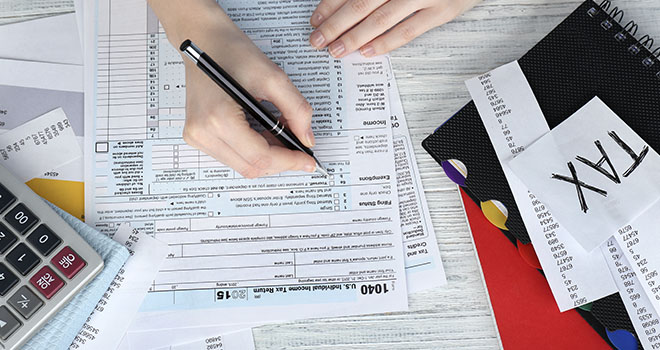On the eve of the Budget, with a vaccine programme to fund, Carla Rossouw, tax lead at Allan Gray considers what levers government has to pull.
What are the revenue drivers in SA?
PIT, corporate tax and VAT account for about 80% of total tax revenue. Is there room to increase any of these drivers?
- South African corporate tax: An increase would negatively impact South Africa’s global competitiveness to attract foreign investment. It would also not yield a substantial amount of additional revenue given the devastating impact which COVID-19 has had on business operations, with some businesses forced to close their doors permanently.
- VAT: The South African VAT rate is still relatively low compared to the rest of Africa and the world and, while theoretically the most effective tool to generate revenue. However, it is also the most controversial, and an increase would hit the unemployed and poorer individuals the hardest.
- PIT: Personal Income Tax remains the largest source of tax revenue. South Africa’s PIT rates rank amongst the highest in the world, alongside Belgium and Germany, coupled with an overburdened and highly concentrated tax base, it leaves little room to introduce significant changes. However, ‘bracket creep’, a ‘silent’ revenue generator for the government, has become a common feature over the last few years.
Where to from here?
Rossouw describes that lockdown measures have contributed to higher unemployment and lower consumption, which has contributed to a significant reduction in tax revenue. “We expect the 2021 Budget to centre around tax increases and improving the tax collection capabilities of SARS.”
- Tax increases to close the revenue gap: The Medium-Term Budget Policy Statement (MTBPS) in October 2020 indicated that South Africa’s public finances have been deteriorating for some time and government spending remains too high for the tax base. This, coupled with the devasting impact of COVID-19, may result in certain tax measures being announced. The government is seeking to increase taxes by R50bn over the next four years, starting with projected tax increases of R5bn in the next financial year. An advisory panel appointed by the president indicated that hikes to the fuel levy and estate taxes could be considered, as well as a three-year solidarity tax for high income earners.
- Continued focus on enforcement and improving tax collection and administration: The 2020 MTBPS reconfirmed the Davis Tax Committee’s proposals to rebuild the capacity and efficiency of SARS to improve collections by addressing tax leakages (focusing on VAT fraud and international taxes, in particular aggressive offshore structures/planning) and using third party data to identify non-compliant taxpayers.
The cost of tax revenue collection is an important indicator of the efficiency of revenue administration and is often used when benchmarking against administrations in other countries. This ratio is calculated by dividing the operating cost of a revenue authority by total tax revenue collected. The 2020 edition of the Tax Statistics publication indicated that SARS’ cost-to-tax-revenue ratio is below the international benchmark of 1%. Through automation and digital migration, SARS has managed to reduce the volume of manual activity and improve turnaround times (this was expedited in 2020 in response to COVID-19 service delivery concerns). Technology is therefore at the forefront in driving SARS efficiency and there seems to be no indication of slowing down.
Rossouw reminds us that in February 2020, Minister of Finance Tito Mboweni recognised that most options had been exhausted to try raise more tax from individuals. She quotes ophthalmologist and author Austin O’Malley: “In levying taxes and in shearing sheep, it is well to stop when you get down to the skin.”
“But as the minister runs out of options, raising new and additional taxes to help bridge the revenue gap may be back on the cards. However, an increase in tax will not have the desired trickle-down effect to areas where it is needed the most, if government does not effectively deal with corruption and the looting of public funds. “
The double whammy of corruption and state capture, which led to the increase in VAT, followed by the pandemic, leaves little room for manoeuvring, as the sheep shearing analogy so succinctly puts it.



